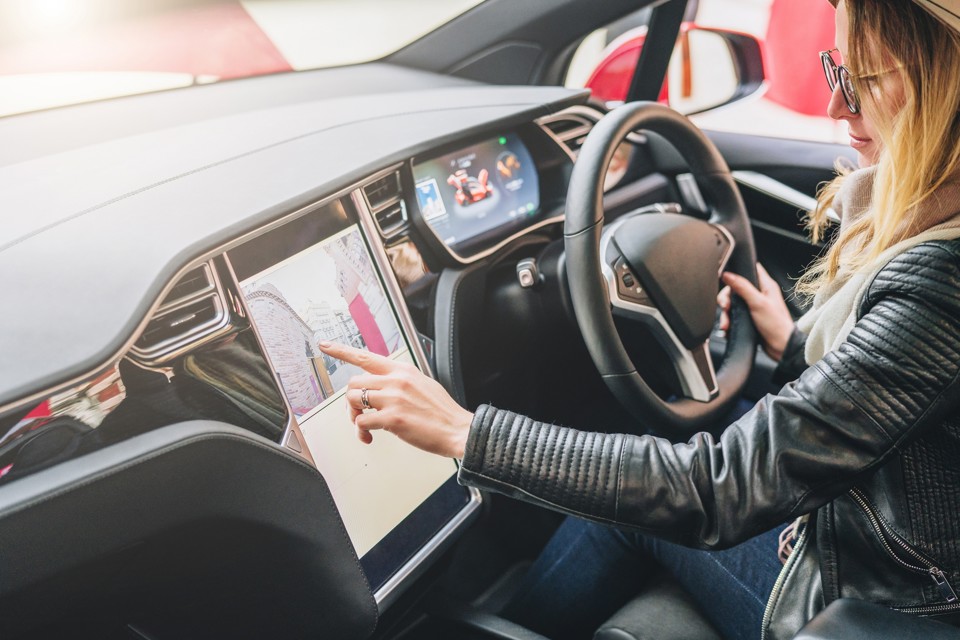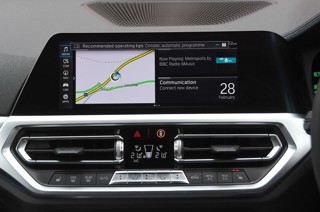Safer voice-controlled infotainment systems are the future of in-vehicle technologies to cut collisions caused by distracted driving, says TRL.
The UK’s Transport Research Laboratory has recently authored a report into the impact of in-vehicle infotainment systems such as Android Auto and Apply CarPlay on driving performance.
A study published by TRL in March reported that in-vehicle infotainment systems are impairing reaction times behind the wheel more than alcohol and cannabis use.
The study also found that drivers took their eyes off the road for as long as 16 seconds while driving (equivalent to a distance of more than 500 metres at 70 mph), and using touch control resulted in reaction times that were even worse than texting while driving.
Evidence shows driver distraction levels are much higher when using touchscreen technologies compared to voice-activated systems.
Driver distraction is estimated to be a factor in up to 30% of vehicle collisions across Europe.
Dr Neale Kinnear, head of behavioural science at TRL, said: “The results of this study clearly show that touch-control infotainment systems are highly distracting to drivers, far more so than voice-activated systems.
“However, even current voice control systems increase drivers’ reaction times and remains a concern for road safety.
“This is why TRL is recommending that we put our efforts into developing a framework for testing and improving the human factors of such systems.
“This includes improving voice activation as a method of control, as this has the opportunity to greatly reduce the workload on a driver thanks to innovations being made in conversational artificial intelligence (AI).
“TRL would like to see safety standards improved around infotainment systems, not just by their definition, but also through the harmonisation of standards across the entire transport sector.”
The report, commissioned by IAM Roadsmart, FIA Road Safety and Rees Jeffreys Road Fund, found the improved safety of in-vehicle infotainment systems is a must if this number is to be decreased in the future.
By improving voice activated systems through the use of such solutions as conversational artificial intelligence (AI) it is possible that infotainment systems could become less distracting for drivers.
This call for voice-activated systems is supported by the development of conversational AI which enables speech interfaces to operate at a complex level.
Currently, voice control systems only understand a set of key commands. Through conversational AI, this will widen to include all forms of dialogue to enable a versatile, natural interaction. Once this is achieved, voice control systems will be revolutionised.
Andy Peart, chief marketing and strategy officer at Artificial Solutions, added: There is no doubt that conversational AI will be the defining technology of the next decade.
“As it becomes smarter, faster and more advanced, AI will be of immense benefit to in-vehicle systems by allowing more complex user demands to be understood and fulfilled, as well as enabling multi-directional interaction to occur between the system and the consumer.”
Kinnear called for an agreed framework for testing to improve the use and safety impact of in-vehicle technologies which manufacturers can use to demonstrate the safe use of their systems before bringing them to market.
He added: “Alongside improvements in voice activated systems, there is opportunity to improve systems so we don’t make the driving task more complicated in the future.”























Colin Paterson - 03/05/2020 09:27
Voice control certainly sounds a more sensible option than the increasing plethora of buttons - often on a changing digital screen. DriveTech have a free whitepaper on "ADAS - attraction or distraction?" which may also help inform this important debate - free to download - visit drivetech.co.uk and search "ADAS".